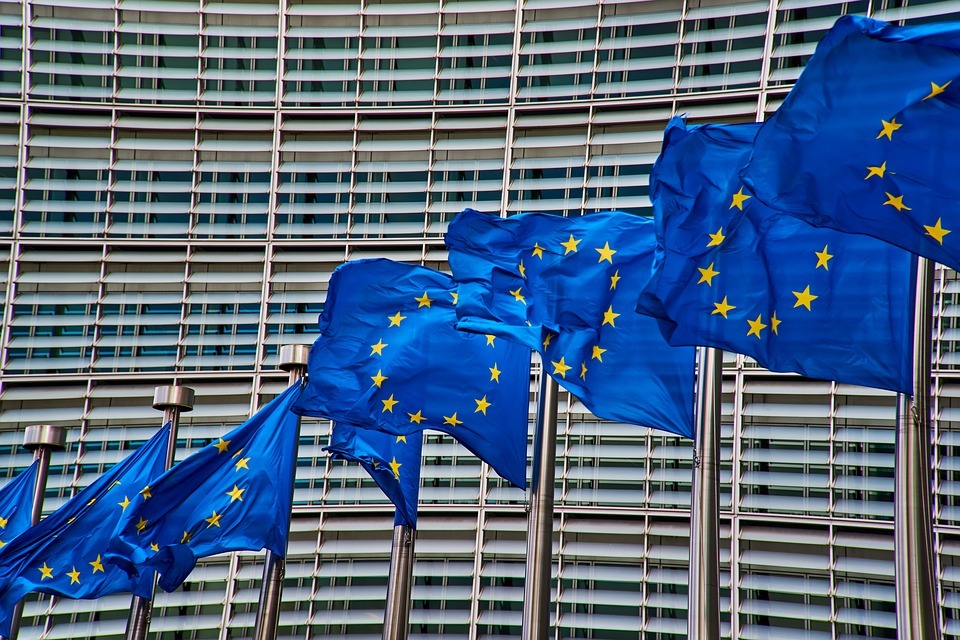A call to action for a world economy in crisis
This article was originally published in Le Monde
• The agreement reached by Finance Ministers in their April 9 meeting was a first step but is not enough to fight the crisis that is coming. We need common European action
• The EU should create Coronabonds funded by the EU with guarantees from Member States
• We need an investment plan that is both bold and ambitious in its objectives and which includes investments in environment, infrastructure and in technology.
• Money must only flow to those protecting employment and incomes
The current Coronavirus crisis has exposed the many shortcomings of the current global governance system with one aggravating factor: the huge loss of human life in most countries. The number of cases rises by the minute. All countries are hit although the pandemic has not yet hit Africa as strongly as it has hit China, Europe and the Americas. Global supply chains grind to an halt. Factories are closing down. Countries on several continents are in lockdown. The economic effects are beyond anything anyone could imagine 2020 would look like. Bloomberg economics estimated the current crisis could cost the world economy 2.7 trillion USD, the equivalent of UK’s GDP- but this depends on how long lockdowns last - and if there will be a second wave before a treatment or vaccine is available. We risk a crisis of epic proportions.
Yet, the fact that all countries are hit does not seem enough to ensure the kind of global cooperation we saw in 2008. Under his “America first” slogan, President Trump tried to get exclusive access to a vaccine from a German lab. As if that was not enough, he tried to brand it as the Chinese virus, as if it was simply that nation’s fault .
In Europe, the agreement reached by finance ministers in their April 9 meeting was a first step but is not enough to fight the crisis that is coming. the response has been marked by dispute as much as cooperation. The European Council of March 27 highlighted once again strong differences within the world’s most integrated regional bloc. The Italian Prime Minister was particularly sharp with Merkel. The Portuguese Prime Minister described the statements of the Dutch Finance Minister as “repugnant”. And said so twice to underline it. Previous crisis such as the economic and financial crisis, the migration and refugee crisis outsourced to Turkey, and Brexit threatened the EU project. Many thought it would sink but it didn’t. This time however it is far more serious – without effective, coordinated multilateral action we may well be facing a global depression of the like not seen since the 1930’s.
Every country needs to take the health crisis and the economic crisis extremely seriously. The economic threat—the risk that this huge shock turns into a downward spiral, is a threat of a scale no living policymaker has ever experienced, and it requires dramatic action on every front, most importantly to support employment and wages. And we cannot repeat the neo-liberal mistakes of the period following 2008. If the discredited ideas that drove austerity policies in many countries in those years, which in reality were bad economic policies, are allowed to influence public policy in any of the world’s major economies the consequences will likely be disastrous for everyone.
Europe in particular needs to act and to act quickly - the response to a crisis of this magnitude can not be left simply to Central Banks. And despite Brexit, we must all act together to fight this common crisis. This is no time for division. As Jacques Delors, former President of the European Commission put it, “The climate that seems to hang over the heads of state and government and the lack of European solidarity pose a mortal danger to the European Union”.
This crisis has highlighted some basics not working in the EU: first, health is a global public good but the EU has virtually no mandate for it. This has led to uncoordinated and often contradictory policies from Member States. Second, setting aside the fact the current budget is finishing and member states can’t agree on the next one, the EU budget is small compared to what it needs to be to cope with shocks of this magnitude. Third, the current fiscal tools will need reform or to paraphrase Mario Draghi “ much higher public debt levels will become a permanent feature of our economies”.
Extraordinary times require extraordinary measures. Now it is not the time to disregard instruments that can be helpful, instead to do whatever it takes and do so urgently. We need common European action. What could that entail? In addition to mobilizing resources from the EIB and redeploying the current EU budget, and an increase in the next EU budget, we need other meaningful measures. The European Stability Mechanism’s credit lines are the most immediate way to provide liquidity but this time around we are all facing a common enemy - a symmetric crisis. All countries, even the ones that might not need it, should be able access those credit lines. This time around conditionality cannot mean austerity. That would be bad economics and bad politics. It must mean the opposite. Money must only flow to those committed to using that money to maintaining employment and incomes. The discussion on Eurobonds needs be serious - if Europe had acted boldly in the past we would have been better equipped to deal with this today. As an immediate first step, the EU should create Coronabonds funded by the EU with guarantees from Member States. At the same time and taking into account the experience gained from Coronabonds, the EU should continue to assess how to move towards a system of Eurobonds - but that will work only if accompanied by a strong transfer of fiscal authority to Brussels. Eurobonds are a key instrument to strengthen the EU economy facing a global crisis. For this reason eurobonds should be instruments to achieve different targets. Bonds should be issued to finance, among others, unemployment insurance schemes, infrastructure investment or health care related spending and be used to strengthen the international position of the Euro including vis-a-vis the US Dollar. Lastly, the EU needs to be there for the people - who are going to lose their jobs. Many families will struggle. Europe needs to act on the employment and social front urgently. A European unemployment insurance scheme accompanied by a European investment recovery plan is the strict minimum. That plan needs to be bold and ambitious in its objectives. It needs to include investments in environment, infrastructure and in technology. But it also needs to encompass what became obvious with this crisis: Europe’s outsourcing of manufacturing and production over the years. If Europe today needs 10 times more coronavirus medical equipment that is certainly not China’s fault. Europe needs to renew its industrial policy and identify areas where it needs to excel. And those may not just be “industrial champions” but also basic products. Truth be told: several EU Member States have reacted quickly, presented strong economic packages and took measures to protect workers’ salaries and jobs. Portugal made sure all immigrants and asylum seekers with pending residency requests would be granted immediate temporary approval so that they can benefit from all health and social services during the crisis.
The Americas and Asia face similar challenges, and those countries that have most deeply embraced radical market ideologies generally face the most severe forms of these challenges. The United States faces the same consequences of deindustrialization, labor market deregulation and public disinvestment, but on a much larger scale. The sight of health care workers in the U.S. without basic safety equipment and Amazon workers without paid sick days in the wealthiest nation in the world is grim testimony to the consequences of the solidarity deficit that radical market ideologies have promoted.
We are all facing the same challenge although various countries may be at different stages of this crisis. But now more than ever, we need global cooperation and multilateralism to function. No country will be able to come out of this on its own.
We need improved and better coordination among governments and between central banks. The G20 needs to be bold and choose a roadmap with concrete measures and funding to tackle the health and economic crisis, mobilize and strengthen multilateral development banks and the IMF. G20 countries are at different stages of this pandemic: they can learn from each other. A basic step would be to ensure there is research and scientific cooperation and transparency in the search for vaccines and treatments. A vaccine and treatment needs to be made available to all, not to profit making initiatives. It is also crucial that the USA, China and Europe work on their differences around the markets in vital safety equipment and medical supplies . Countries need to work together; if all blocks simultaneously block exports of medical related items to fight the coronavirus, nobody will benefit. But an auction to see who bids the highest won’t work! Now, it is not the time to make profits but to act collectively for the greater good. A solution needs to be worked within the multilateral structures to make sure life saving equipment gets to all the world’s people who need it. If all countries or blocs start acting unilaterally instead of cooperating the end result will not be good and shortage of medical supplies and medicines could be only the beginning.
This pandemics has not yet hit Africa in the same proportion as elsewhere. But most likely it will. The continent’s institutions, health and educational systems are not as equipped to deal with its effects. Most of the continent will struggle to enforce lockdowns. And public health systems already face a shortage of medical staff, equipment and basic material to respond effectively. Countries should look at ways to facilitate receiving medical professionals from abroad and international development organisations and bilateral donors should coordinate their actions to better support governments dealing with this. Equally It is unavoidable to look seriously at debt forgiveness.
One aspect overlooked so far is the impact on education systems and learning. If in Europe, USA and many Asian and Latin American countries are more or less able to deploy digital technology to help learning, in Africa the impact on children and their access to education will be overwhelming. Currently 95% of children in Latin America and Caribbean are out of school as a result of Covid-19. In sub-Saharan Africa, more than half of the population still does not have electricity, making it impossible to use digital technologies for learning. Yet, one of the lessons of this crisis is about technology. It has become the way most people interact and digitalisation the way our children learn. Development organisations need to partner with the private sector not only for content development but also to ensure the poorest are not even more excluded. The potential of technology to promote inclusion is tremendous but we need a global strategy and the full involvement of all partners.
We face a global crisis - we need a global answer. Part of that has to be about taking collective action and identifying global public goods. Health is a global public good. Education is a global public good. Power, needs to be recognized as a global public good. We need to make sure we all have access to the basics. Technology became vital and digital exclusion can be overcome. Our environment needs to be protected. Just as important is to tackle all this together. It became evident that the old neoliberal approach that viewed maximising profit as the only economic variable that led to emptying the public sector did not work. It is at times like this when most of us realise how important fully functional governments and the State are. It is time for political leadership and for governments and multilateral organisations to take a leading role to make all of us get through this. Let us be bold together.












